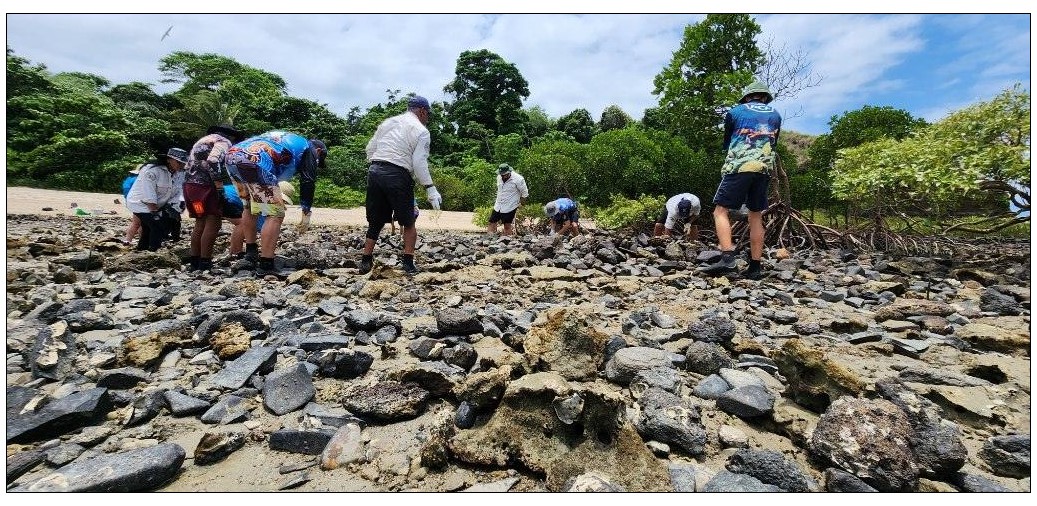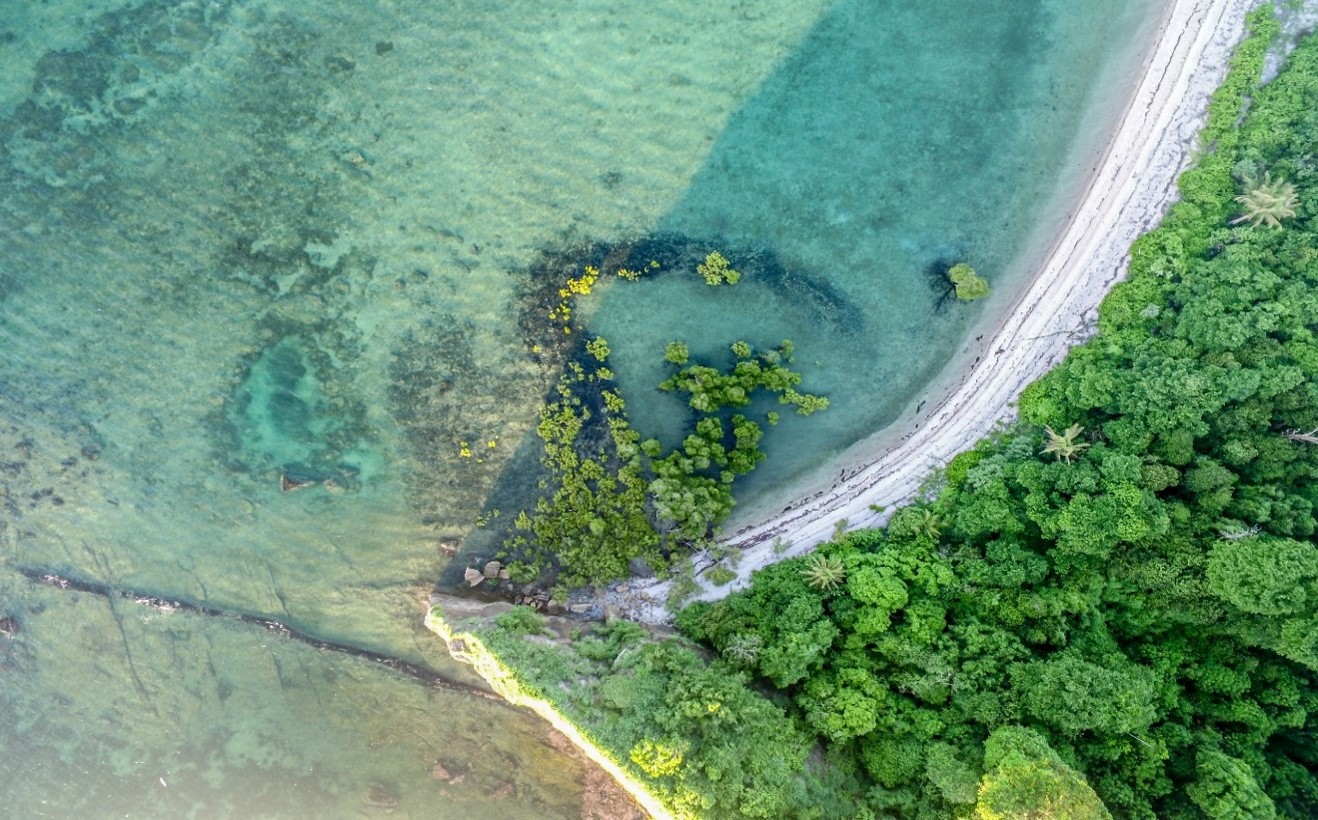Mandubarra Rangers restore a traditional fish trap




Aims and overview
Mandubarra Rangers are restoring a traditional fish trap at Bajigal (Stephens Island) in the Barnard Island Group. For many generations the fish trap provided a sustainable food resource and was used to catch, trap and store fish. The restoration project is important, as it is Mandubarra people’s cultural connection to sea Country and food security.
The project is supported by Mandubarra Junior Rangers, Elders, and the Traditional Use of Marine Resources Agreements (TUMRA) committee and partners including the Cassowary Coast Regional Council, QPWS, GBRMPA and Kurrimine Boat Charters.
Activities and outcomes
The process of restoring the fish trap is involving three stages over three years. Stage 1 was successfully completed after six months of planning. It involved rebuilding the fish trap rock wall and adjusting the level of the wall using materials found on site. This stage also reduced the impacts caused by visitors over many years. Rangers will continue to monitor the site for damage from weather, animal, and visitor interference.
Having the Elders, Traditional Owners and Junior Rangers involved in the project allowed knowledge-sharing about the significance of this site, and its cultural value for Mandubarra peoples’ food security. The Sea Country Cultural Values Report and photos documenting the work was shared with the community to enhance their knowledge about the site and the importance of rehabilitation of sea Country.
Working on the fish trap was an overwhelming experience for all involved. Mandubarra people held hands while performing a ‘welcome back to country’ acknowledgement to ancestors, feeling the presence of their old people amongst them. It put tears in their eyes and lumps in their throats— their Country missed them.
An unexpected outcome of the project was realising the high level of visitor impact on the site, and the need for cultural site protection. Lack of management presence around Bajigal Island allows campers to remove fish trap rocks for campfires. Compliance monitoring, buffer zones and signage around the cultural site will be important to reduce future visitor impacts.
Learnings and next steps
The main learning for the Mandubarra community was gaining knowledge from Elders about sea Country and the use of traditional materials. The project helped realise the importance of opportunities to learn by working on sea Country, understanding customs, song lines and stories that connect Mandubarra people to land and reefs.
Another learning was the importance of communicating, reporting and capturing data, and the need for relationships with additional partner agencies.
Rangers also gained learning from planning access to the cultural site, which involved four vessels to transport participants to the island and setting up a base camp for seven days. This was one of Mandubarra people’s first activities undertaken offshore, so the Rangers shared knowledge about what to expect, as some Traditional Owners had never visited the island or used the fish trap and were honoured to be involved. This project has excited the rest of Mandubarra mob to be on Country.


